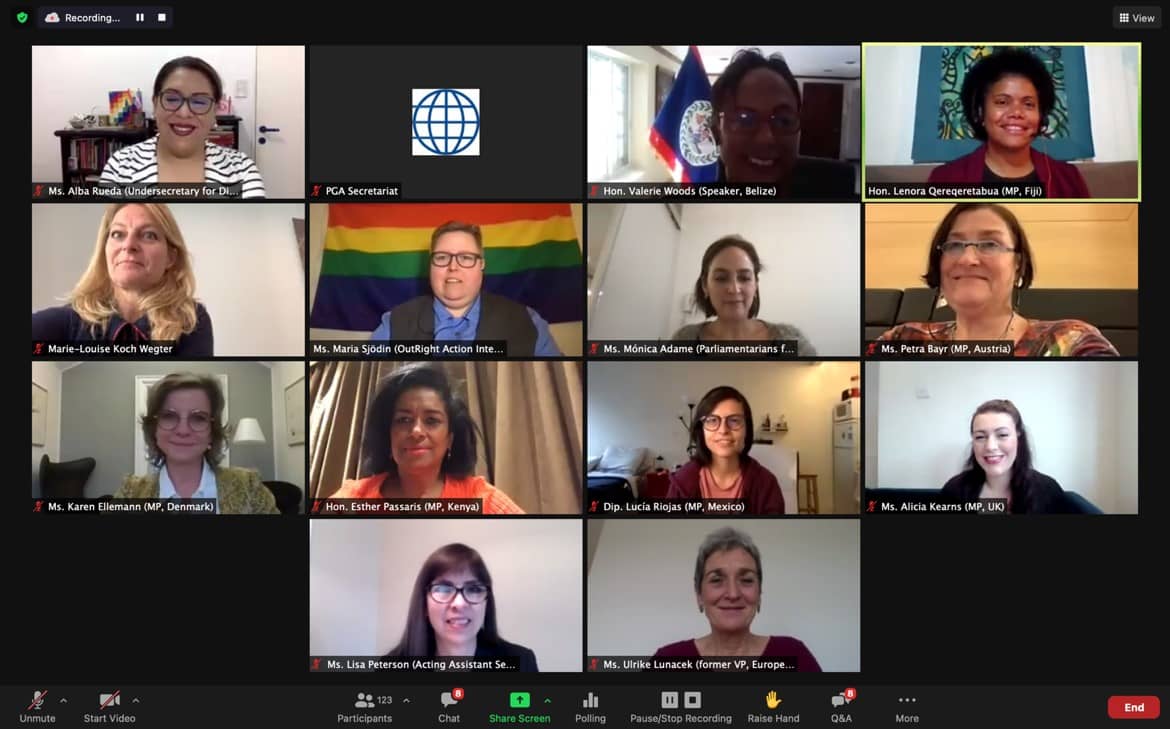
“Women Leaders as Advocates for Equality and Inclusion of LGBTI+ Persons”
March 24, 2021
Side Event to the 65th Commission on the Status of Women
Main organizers: Permanent Mission of Denmark to the UN and Parliamentarians for Global Action.
Co-organizers: Permanent Mission of Argentina to the UN, Permanent Mission of Chile to the UN, Permanent Mission of Mexico to the UN, Permanent Mission of the Kingdom of the Netherlands to the UN, Permanent Mission of the United States to the UN, Copenhagen 2021, OutRight Action International and LGBT+ Danmark.
Watch the recording of the event here:
Parliamentarians have a critical role in ensuring the rights of all their constituents are respected and promoted, especially persons in vulnerable situations. Female parliamentarians, due to the systemic discrimination faced by women, have a particularly valuable experience and understanding of the need to address inequalities and defend the social inclusion of marginalized groups. Women parliamentarians, therefore, have a powerful voice and story to bring to advocate for the rights of lesbian, gay, bisexual, trans and intersex (LGBTI) people and are well-placed to use their political capital as leaders to champion equality, as demonstrated by the many examples in which feminist and LGBTI+ movements have joined forces and worked as allies against discrimination.
This side event brought together women parliamentarians and civil society leaders in a lively conversation to share best practices, successes and challenges to further scale up concrete initiatives and legislative actions to address deeply rooted, multiple and intersecting forms of discrimination and achieve equality and inclusion of LGBTI+ people. It served as a precursor to the global LGBTI+ Interparliamentary Plenary Assembly that will take place in Copenhagen, Denmark on August 20, 2021.
The event was moderated by Maria Sjödin, Deputy Executive Director, OutRight Action International.
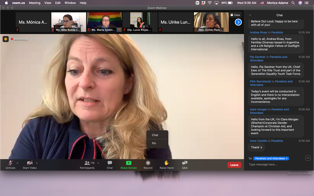
H.E. Ambassador Marie-Louise Koch Wegter, Deputy Permanent Representative of the Mission of Denmark to the UN, welcomed participants noting that it is a mystery to her how love between consenting adults may be seen as a threat to society, while in some societies girls can be married off to adult men.
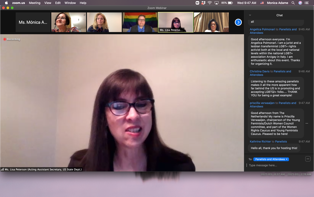
Ms. Lisa Peterson, Senior Bureau Official for Civil Security, Democracy and Human Rights and Acting Assistant Secretary for Democracy, Human Rights and Labor, United States Department of State, described US support for global efforts to promote equality and inclusion of women and LGBTI+ people.
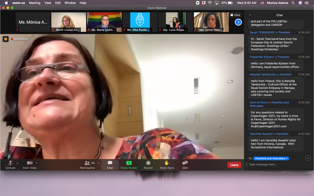
Ms. Petra Bayr MP (Austria), Board member of Parliamentarians for Global Action (PGA), introduced PGA’s Global Campaign against Discrimination based on Sexual Orientation and Gender Identity, which raises awareness among parliamentarians about equality and non-discrimination, strengthens communication and cooperation between parliamentarians and LGBTI+ civil society and advocates for anti-discrimination legislation and decriminalization of consensual same-sex relations.
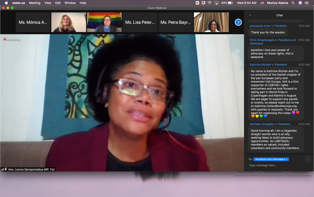
Hon. Lenora Qereqeretabua, MP (Fiji), stated that we need more women leaders to speak up for our LGBTI+ family members and community. Fiji was the second country after South Africa to protect LGBTI+ people in its constitution, yet same-sex marriage is banned and bullying of LGBT people is common. LGBTI+ people still face many levels of discrimination, including obtaining equal treatment in a court of law. She provided an example of good cooperation between MPs and civil society in her country: the Rainbow Pride NGO is working in political spaces and preparing a handbook for Fiji parliamentarians.
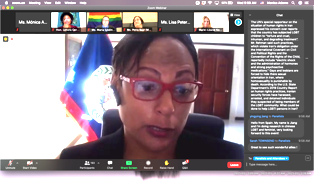
Hon. Valerie Woods, Speaker of the House of Representatives (Belize), noted that challenging laws is one thing, but changing hearts and minds takes longer. Regardless of personal views, MPs must be reminded that the human rights of all must be respected and protected. In her experience, it’s important not to assume that all MPs come to the job with the same knowledge of international law obligations. She recounted Belize’s experience with the Supreme Court’s 2016 ruling of unconstitutionality to Section 53 of its Criminal Code, which criminalized consenting intercourse between adults of the same sex, and current efforts to adopt an Equal Opportunities Bill, which was expected to be tabled in September 2020, but was withdrawn at the last minute as a result of the opposition of the churches. It is important that parliamentarians and civil society continue dialogue.
“Women have experienced discrimination in our community … and in parliament. We, therefore, have a powerful voice to lend to this discussion on equality and inclusion for LGBTI+ people,” Hon. Woods said.
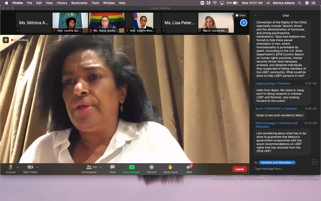
Hon. Esther Passaris, MP (Kenya), described how, in Kenya, there are LGBTI+ civil society organizations but they are not officially registered. She is one of the few MPs who will advocate openly for LGBTI+ rights in Parliament and on social media. Hopefully, there will be more in the future, she noted. The Interparliamentary Assembly at Copenhagen 2021 will be an important space for dialogue. For now, we need closed-door dialogues in the Kenyan Parliament to sensitize MPs and build understanding. When you hear the stories of lesbians raped with the intention of changing their sexual orientation, you hear about the abuse of rights. Despite this, there have been some changes on intersex rights.
“To my colleagues who worry about political backlash for taking a stand, I must ask them ‘Are you in it to retain your political seat or to protect everyone?’,” Hon. Passaris said.
Maria Sjödin interjected that, at OutRight Action International, they believe change happens when there is a movement. She was happy to hear Hon. Passaris endorsed this idea.
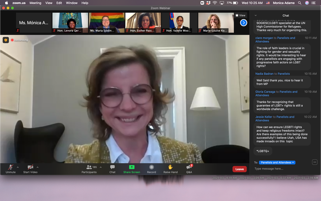
Ms. Karen Ellemann, (MP) Denmark, remarked that even though Denmark is a high-ranking country in terms of benchmarks on LGBTI+ equality, they still have a long way to go. People still hide their identity for fear of discrimination. She shared a few best practices that parliamentarians in Denmark have employed:
- Cross-party support for LGBTI+ rights. Parliamentarians in Denmark know this is about basic human rights and they ensure that debates take place cross-party.
- Having a Prime Minister emphasize the issue is very important.
- Danish MPs have created cross-party action plans across ministerial assignments.
- They have put an LGBTI+ “amplifier” on all legislation in an effort to eliminate any discrimination in legislation.
- They have an SRHR committee that emphasizes cross-party support and arranges debates and discussions with experts and civil society.
- It is very important to have initiatives like the European Rainbow Map with benchmarks, data and the opportunity to be inspired by other countries and examples.
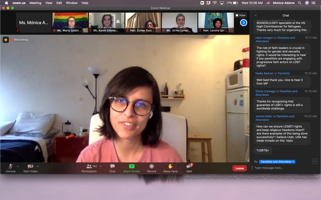
Dip. Lucía Riojas, (MP) Mexico, explained that this is the first time in the country where there is a Congress with gender parity – an incredible victory for Mexico. Despite this, the situation in the country is that the President’s will is law and for LGBTI+ rights the administration is continuing similar policies to the past administration. Trans rights bills have begun to circulate at the state and national levels. Life expectancy for trans women is only 35 years because of violence. She herself has experienced threats because of her relationship to an organization that supports LGBTI+ youth.
Dip. Riojas responded to a question from the audience about how to influence Mexico to adopt the seven recommendation in the UPR by noting that the Mexican Government thinks like a conservative group; there needs to be social pressure on the Government to change.
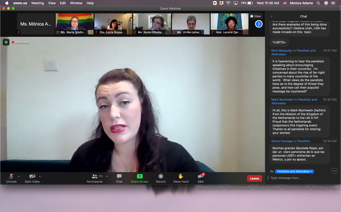
Ms. Alicia Kearns, MP (UK, Conservative), stated unequivocally that there should be no place for identity-based discrimination in this world. Religious liberty is essential but there is a way to respect liberties and also individual rights. She is working to ban conversion therapy in the UK. There is a chance to come together as women to say that love is not a pathology. LGBTI+ people need to hear us say it and mean it.
There was a question from the audience about the argument that feminism and LGBTI+ advocacy are often said to be from the Global North. Hon. Woods replied that this type of propaganda has been around for a long time in Belize. People say we are “importing the issue” and “that it’s not relevant to Belize.” To address this argument, you need to share local stories of discrimination. Not all experiences are universal, but there are some shared experiences. That’s not “importing,” it’s an opportunity to learn from each other.
The converse question was also posed: How can you try to influence the situation in other countries? Hon. Passaris responded that the meeting in Copenhagen will be a good opportunity. People need building blocks and more platforms to learn from each other. “Let’s use the tools we developed in the women’s movement, including drama, songs, poetry and shared conversations, action plans and laws. Whatever happens in one country will have ripple effects in the region,” she said.
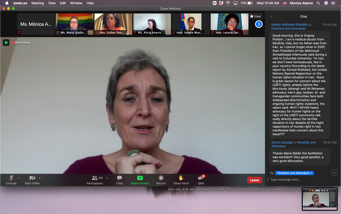
Ms. Ulrike Lunacek, former Vice President of the European Parliament, former Co-President of the European Parliament’s LGBTI Intergroup, Master of Ceremonies of the Interparliamentary Plenary Assembly of Copenhagen 2021, stressed the importance of going beyond laws to change minds and party structures. She shared some lessons-learned that have proven helpful in her advocacy:
- Use humor;
- It’s normal to be different;
- You don’t decide with whom you fall in love;
- LGBTI+ people are present in all societies throughout history;
- Importance of having allies – other MPs, straight women and men, etc.;
- How to make change: be visible, give real-life examples, share strategies and discuss how to improve.
The Interparliamentary Plenary Assembly on 20 August in Copenhagen will be a good platform to discuss how to push governments in supporting structures that give LGBTI+ people the freedom to live how they want to live.
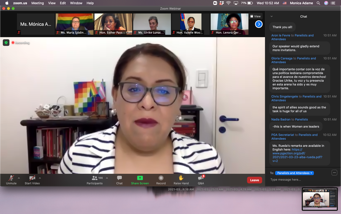
Ms. Alba Rueda, Undersecretary for Diversity Policies at the Ministry of Women, Genders and Diversity, Argentina, delivered closing remarks. She noted that the perspective of diversity allows women, lesbians, gays, transvestites, trans, bisexuals, intersex and other gender identities to have a major role in the construction of a more just and egalitarian society. This premise has been expressed in the legislative and public policy in Argentina. Her full remarks are available in English and Spanish.

